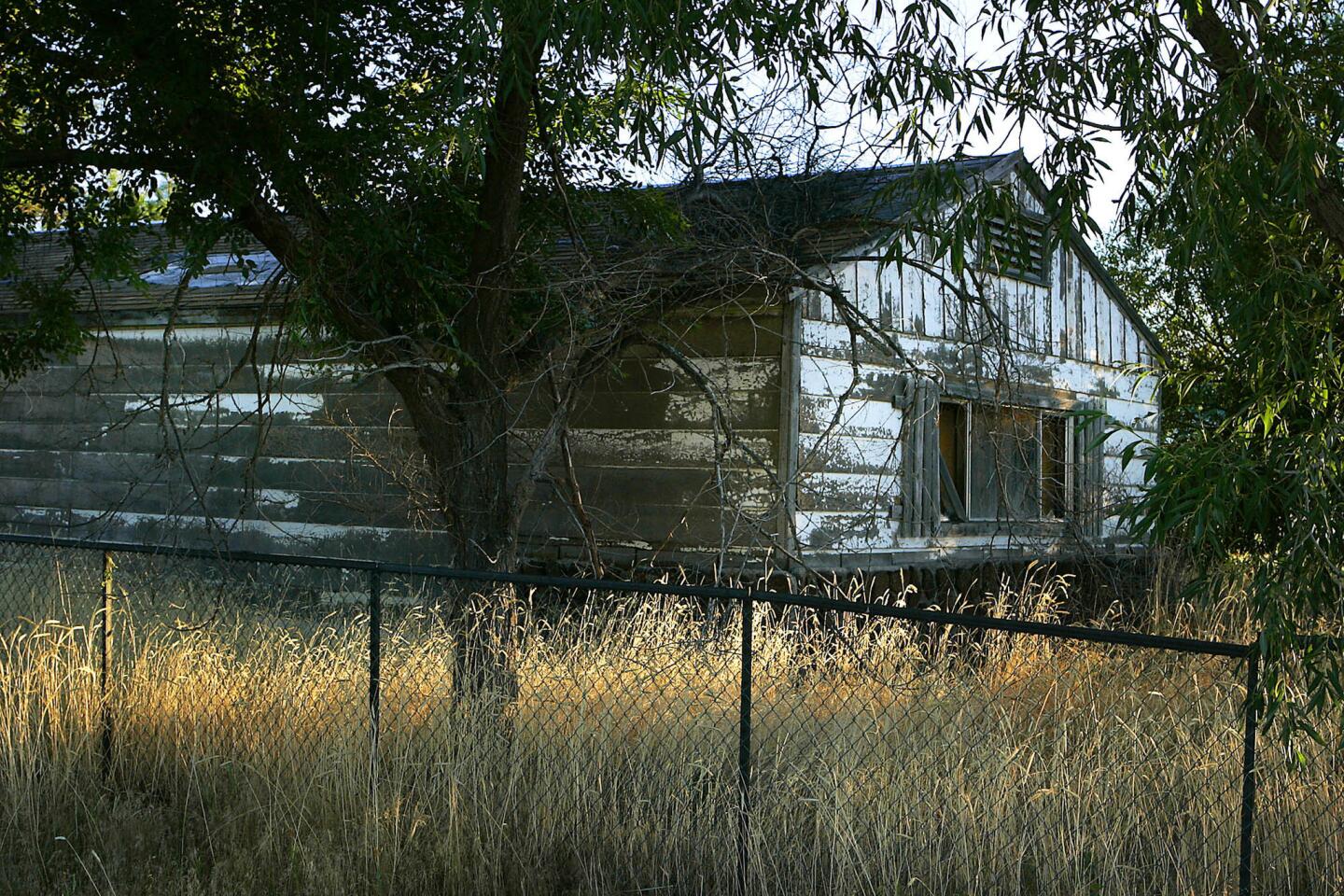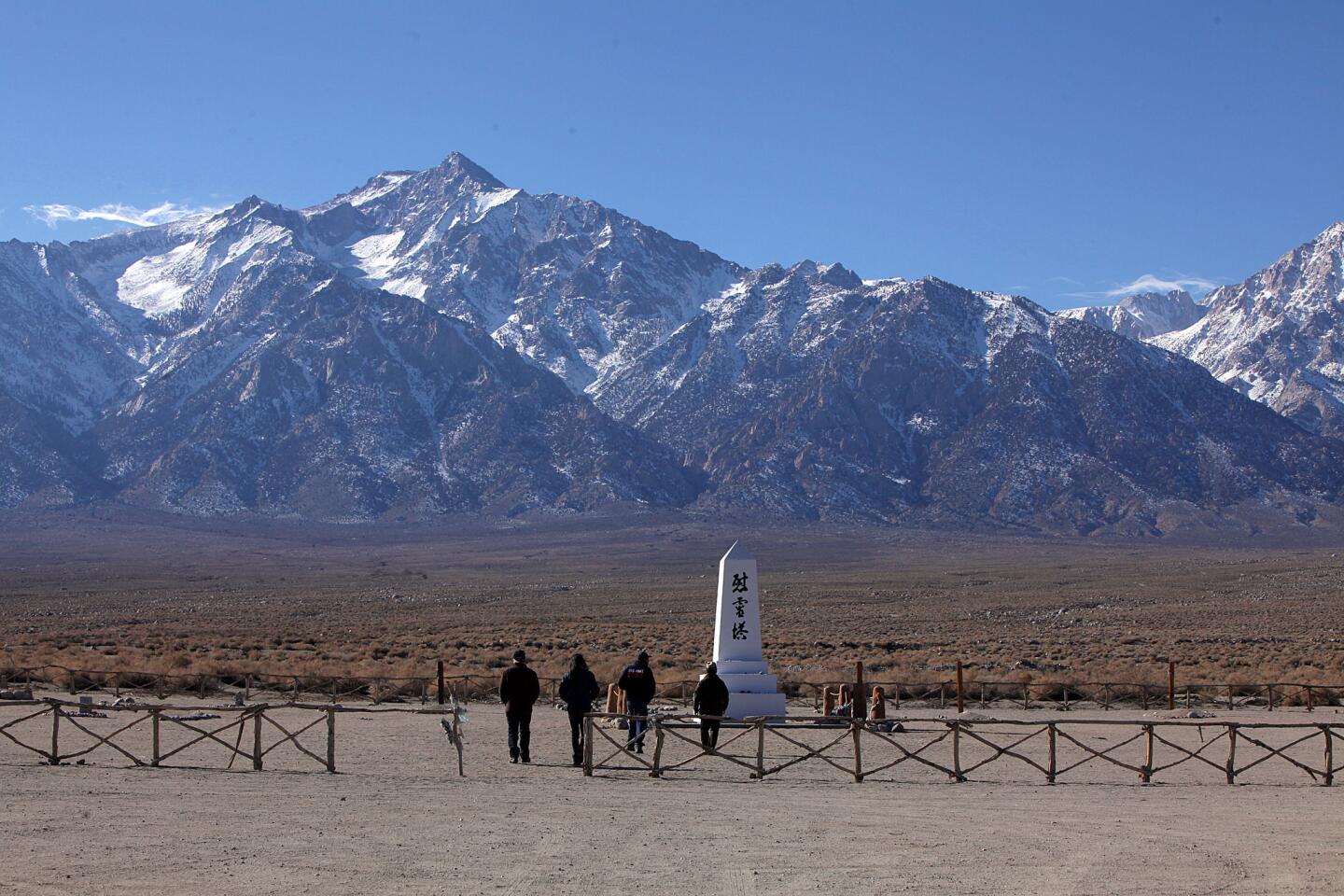Japanese American who fought U.S. internment camps in WWII to get posthumous honor
It was the plight of every Japanese American on the West Coast in the early 1940s: There seemed to be no way Minoru Yasui could prove to his country that he was a loyal American.
So the young, Oregon-born attorney clung to the Constitution like a life raft, even as the U.S. government planned to force peaceful Japanese American families like Yasui’s into detention camps.
Starting a battle he would fight until his death in 1986, Yasui broke a race-based curfew in 1942 to force his own arrest and spent nine months in solitary confinement while awaiting a ruling from the U.S. Supreme Court, hoping to prove America’s treatment of Japanese Americans during World War II was unconstitutionally racist.
NEWSLETTER: Get the day’s top headlines from Times Editor Davan Maharaj >>
On Tuesday, the White House will honor his struggle with a Presidential Medal of Freedom at a star-studded ceremony that will include honors for director Steven Spielberg, singers James Taylor and Barbra Streisand and baseball legend Willie Mays.
Yasui’s fight regained surprising relevance this week as many prominent Japanese Americans criticized U.S. officials for resisting the resettlement of Syrian refugees, likening the Syrians’ struggle to their own during World War II.
A Virginia mayor drew wide attention to the historical comparison when, in a Wednesday statement, he approvingly alluded to the mass detention of Japanese Americans as he called for officials to turn away Syrian refugees after last week’s terrorist attacks on Paris that killed at least 129 people.
“I’m reminded that President Franklin D. Roosevelt felt compelled to sequester Japanese foreign nationals after the bombing of Pearl Harbor, and it appears that the threat of harm to America from [Islamic State] now is just as real and serious as that from our enemies then,” Roanoke Mayor David A. Bowers, a Democrat, said in a statement.
It wasn’t just Japanese immigrants who were deemed security threats, however. Yasui was born and raised in Hood River, Ore., the son of Methodists, going on to become a high school valedictorian and a second lieutenant in the U.S. Army Reserve. But that didn’t seem to matter after World War II broke out and anti-Japanese fervor swept the nation. Racist opinions and remarks were common.
As politicians forged plans to round up more than 100,000 Japanese Americans living on the West Coast and force them into prison camps, strangers eyed the young lawyer and would ask him, “You’re a Jap, aren’t you?”
When the military issued a curfew ordering Americans of Japanese ancestry to stay in their homes between 8 p.m. and 6 a.m., Yasui strongly believed it was illegal and decided to intentionally break curfew in Portland, Ore., on March 28, 1942, to test the law in court.
After Yasui was arrested, indicted and released, he was soon placed in a detention camp under what he later described as the government’s “absolutely illegal, unconstitutional and unenforceable” detention program for Japanese Americans.
He was ultimately convicted of breaking curfew, with a federal judge also claiming Yasui had chosen Japanese citizenship over American citizenship because his family’s ties to Japan and because of his past work with a Japanese consulate in the United States.
During his appeal, Yasui spent nine months in solitary confinement in a 6-by-8-foot cell at the Multnomah County jail in Oregon — only to see the U.S. Supreme Court rule in 1943 that the curfew was constitutional.
“At first the guards would not let me out long enough to take a bath or to get a haircut or shave,” Yasui recalled in “And Justice for All,” an oral history of interned Japanese Americans, describing how his hair became shaggy and his nails became so long that they curled. “After a while I found that the absence of people wasn’t so important to one’s sense of self. I knew who I was, and I knew what I was trying to do.”
Yasui was credited with time served and eventually moved to Colorado. After the war, he practiced law and served in multiple community and civil rights groups. But he never gave up on trying to prove that the U.S. government had acted wrongly.
In 1983, Yasui’s attorney, Peggy Nagae, filed a request to reopen his case, joining two other Japanese American men, Gordon K. Hirabayashi and Fred T. Korematsu, whose federal court cases alleging unconstitutional discrimination rekindled public interest in the government’s actions during World War II.
Nagae said that Yasui, even in late life, “was committed, very fiery, passionate beyond belief, and a great orator. He wasn’t that tall in stature, but if you heard his voice, it was booming. He has this style, he had the presence of somebody who was 7 feet tall.”
Yasui’s conviction was vacated, but he died of cancer in Denver at age 70 before he could persuade the government to address the constitutional merits of his case in court. In 1988, President Reagan signed legislation that apologized and ordered reparations paid to Japanese Americans detained during the war.
“He is a patriot who believed in the Constitution, and he believed the courts would vindicate his rights,” Nagae told The Times on Thursday. “A fervent believer in the law, he knew in our system of justice we have individual guilt, we don’t have mass guilt, mass removal, mass incarceration.”
Nagae added, “That flame inside of him, that fire in the belly for justice, was there as a young child and until the day he died.”
Twitter: @mattdpearce
ALSO
Why fewer Mexicans are leaving their homeland for the U.S.
Convicted spy Jonathan Pollard released from U.S. prison after 30 years
Syrians’ arrival at U.S. border crossing raises concern of a flood of asylum seekers
More to Read
Sign up for Essential California
The most important California stories and recommendations in your inbox every morning.
You may occasionally receive promotional content from the Los Angeles Times.














